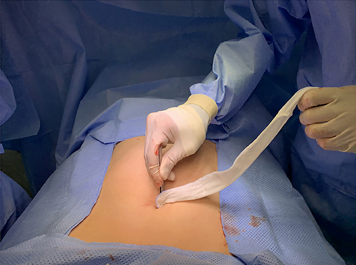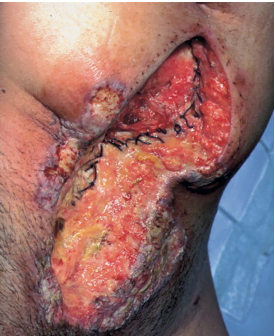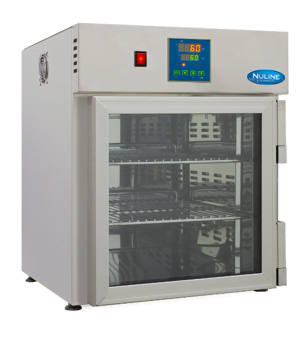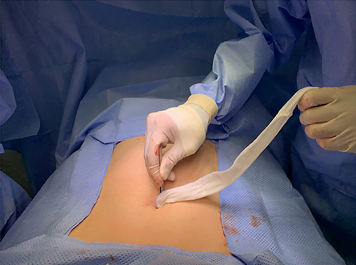In the intricate world of surgery, ensuring every procedure is performed with precision and care is paramount. Both elective and emergency surgeries demand meticulous attention to detail, not only during the operation but also throughout the recovery process. The use of warm fluids for flushing body cavities plays a crucial role in achieving successful surgical outcomes and promoting swift patient recovery. One of the significant challenges in the medical field is preventing post-operative infections and complications, which can arise from even minor negligence.
A critical aspect of achieving successful surgical outcomes and promoting swift patient recovery is the use of high-quality medical equipment and procedures. One such procedure that plays a crucial role during surgery is the irrigation of body cavities with warm fluids. This technique, known as irrigation, helps in maintaining optimal conditions within the body during surgery, significantly contributing to the procedure’s success.
At Health Supply 770, we understand the importance of reliable and effective medical supplies. Our range of advanced irrigation systems and warm fluid solutions are designed to meet the stringent demands of surgical environments. In this blog post, we will delve into the importance of using warm fluids for flushing body cavities during surgery and explore the potential risks associated with using cold fluids. By the end, you will gain insights into how our products can enhance surgical outcomes and support patient recovery.
What is irrigation?
In medical terms, irrigation is the process of washing out an organ, a body cavity, or a wound by flushing it with a fluid or medicated solution. Warming this fluid before irrigation is helpful in many ways as it can help facilitate the patient’s healing process. This can also help to lower the chances of infections. For example, using products like the B. Braun R5200-01 Irrigation Solution 0.9% Sodium Chloride ensures high quality and reliability in such procedures.
Irrigation can help to remove any kind of debris from the surgical site, reducing the chances of inflammation and infection. As the use of warm fluids for flushing body cavities can help to clean the body cavities of any dirt, debris, or bacteria, it can help to reduce the complications caused by these factors. Therefore, it is important to warm fluids for flushing body cavities during surgery.

Why irrigation fluids should be warmed during surgery?
During surgeries, it is important to keep the patient’s body temperature normal to prevent hypothermia. Hypothermia is a state that is caused by exposure to too cold temperatures for a long period. During surgery, the patients are at a higher risk of hypothermia due to disruption of thermoregulation by anesthesia, which is coupled with cold exposure to procedural surroundings, cold intravenous, and irrigation fluids. Using warm fluids for flushing body cavities is crucial, as patients can have an increased risk of developing hypothermia if they are given cold fluids or blood.
For this purpose, blood is warmed to the core body temperature before giving it to a patient. Apart from blood, the use of warm fluids for flushing body cavities will help to prevent hypothermia which is a dangerous drop in the patient’s body temperature. Hypothermia can be dangerous as it can lead to complete failure of the heart and respiratory system. It can also cause:
– Increased cardiovascular complications
– Blood loss and transfusion requirements
– Increased infection rate
– Discomfort and shivering after surgery
– Increased time of hospital stay
Using warmed solutions, whether intravenous or irrigation fluids, can help to prevent hypothermia and its above-listed consequences. If cold fluids are used for flushing the body cavities during surgery, it can add up in the loss of patient’s temperature drop and cause the hypothermia to become severe. Warming the fluids before flushing cavities during surgeries can help in the following ways.
– Reduced blood loss
Hypothermia can lead to increased blood loss during surgery. This is because of the platelet dysfunction and coagulation cascade enzyme dysfunction. An increased blood loss can make it difficult for surgeons to operate and control the bleeding. Therefore, it is important to prevent it.
– Surgical wound infection
Hypothermia has been associated with a higher risk of surgical wound infection that can cause complications and increase the hospital stay of the patients. Therefore, it is highly significant to prevent hypothermia during surgery which can be caused by using cold and not warm fluids for flushing body cavities.

– Cardiac events
Severe hypothermia can cause an increased risk of complete failure of the heart. Apart from heart failure, it can also lead to several cardiac events including angina, ischemia, infarction, and, cardiac arrest. The use of cold irrigating fluids combined with other factors during surgery can increase the chances of the patient suffering from any of these complications.
– Shivering and thermal discomfort
Hypothermia during surgery can lead to thermal discomfort, oxygen consumption, vasoconstriction, and, shivering. As shivering is four times more dependent on a person’s core body temperature than his skin temperature, it is one of the most common symptoms reported by people after surgery. This shivering is caused by the anesthetic-induced inhibition of thermoregulation. Therefore, to avoid shivering after surgeries, it is important to maintain normothermia during surgeries.
– Increased length of hospital stay
The complications caused by hypothermia can cause an increase in the hospital’s stay time. It can cause problems for the patients as well as for the medical staff and hospitals. Therefore, hypothermia should be avoided to minimize the time of hospital stay.
How to warm fluids for flushing body cavities?

Fluids are warmed before administering to a body cavity with the help of an in-line fluid warmer or warming cabinet. These fluid warmers help to warm these fluids to core body temperature and assist in reducing the chances of complications. Apart from these, cotton blankets, wool blankets, heaters, warm water mattresses, and many other things can be used for the prevention of hypothermia.
Conclusion
Warm fluids for flushing body cavities during surgery is important as it can assist in reducing the chances of hypothermia in surgical patients and its further consequences. However, it is important to note that only warming irrigation fluids do not help prevent hypothermia. There are several other factors that contribute including warming the intravenous fluids and keeping the patient warm before, during, and, after the surgery.
It is important that using all these factors, the hospital staff must ensure minimum heat loss of the patients so that the patients can recover faster and not develop any severe consequences caused by hypothermia. Due to the assistance warmed fluids provide in reducing the chances of hypothermia and its consequences, we can say that it is highly significant to warm fluids for flushing body cavities during surgery.

PhD Scholar (Pharmaceutics), MPhil (Pharmaceutics), Pharm D, B. Sc.
Uzma Zafar is a dedicated and highly motivated pharmaceutical professional currently pursuing her PhD in Pharmaceutics at the Punjab University College of Pharmacy, University of the Punjab. With a comprehensive academic and research background, Uzma has consistently excelled in her studies, securing first division throughout her educational journey.
Uzma’s passion for the pharmaceutical field is evident from her active engagement during her Doctor of Pharmacy (Pharm.D) program, where she not only mastered industrial techniques and clinical case studies but also delved into marketing strategies and management skills.
Throughout her career, Uzma has actively contributed to the pharmaceutical sciences, with specific research on suspension formulation and Hepatitis C risk factors and side effects. Additionally, Uzma has lent her expertise to review and fact-check articles for the Health Supply 770 blog, ensuring the accuracy and reliability of the information presented.
As she continues her PhD, expected to complete in 2025, Uzma is eager to contribute further to the field by combining her deep knowledge of pharmaceutics with real-world applications to meet global professional standards and challenges.








